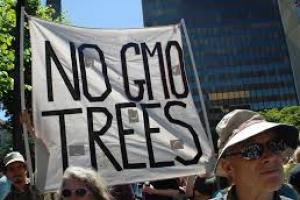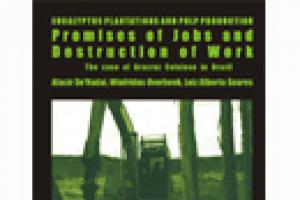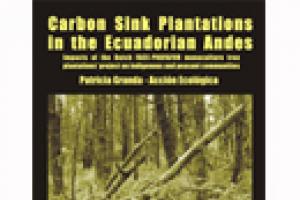Uruguay is in the sights of the pulp industry. The Finnish multinational company, Metsa Botnia and the Spanish company Ence are proposing to install two pulp mills to produce bleached eucalyptus pulp (using ECF process with chlorine dioxide) for export, with Botnia producing a maximum volume of 1 million tons per year and Ence 500,000 tons. The pulp mills would be installed on the banks of the Uruguay River, which Uruguay shares with Argentina, in the locality of Fray Bentos.
Large-Scale Tree Plantations
Industrial tree plantations are large-scale, intensively managed, even-aged monocultures, involving vast areas of fertile land under the control of plantation companies. Management of plantations involves the use of huge amounts of water as well as agrochemicals—which harm humans, and plants and animals in the plantations and surrounding areas.
Bulletin articles
15 June 2005
The Inter-American Development Bank (IDB) does not have a specific forest policy or sector strategy, as they claim they have covered forests in other policy and strategy documents, including those on rural poverty reduction, rural finance, agriculture, water resources, coastal resources and energy. The IDB’s current draft of its Environment and Safeguards Compliance Policy also touches on protection of natural habitats.
Other information
15 June 2005
Since it was founded in 1956, the International Finance Corporation (IFC) has committed more than US$44 billion of its own funds and arranged a further US$23 billion in loans for 3,143 companies in 140 countries. According to its mission statement, IFC exists to "promote sustainable private sector investment in developing countries, helping to reduce poverty and improve people's lives."
Other information
3 June 2005
3 June 2005 - Montreal, QC, Canada
Bulletin articles
20 May 2005
The Liberian NGO Save My Future Foundation (SAMFU) has conducted an inquiry into the Firestone Rubber Plantation Company's 69 years of operation, and the result is the report “Firestone: The Mark Of Slavery” (to see the full report: http://www.samfu.org/firestone.html).
Bulletin articles
20 May 2005
Large scale monoculture tree plantations have been imposed globally, erasing other ecosystems, changing water patterns, eroding the soil, creating poverty. Within a project of the South African NGO Geasphere to examine such impacts on rural people’s livelihoods and culture in the Province of Mpumalanga, Godfrey Silaule conveys a vivid picture of how people from the Graskop community suffer such distortion:
Bulletin articles
20 May 2005
In 1979, when occupying one of the last remaining forest areas of the Mata Atlântica (Atlantic Rainforest), not yet cut by the former Aracruz Florestal --currently Aracruz Celulose-- the Tupinikim and Guarani indigenous peoples in the State of Espírito Santo started a long struggle to get their lands back. This struggle was interrupted in 1998, when Tupinikim and Guarani indigenous communities, isolated and under great pressure, had to sign an agreement with Aracruz Celulose.
Bulletin articles
20 May 2005
The Colombia Plan has proved to be functional for oil palm economic groups (see WRM Bulletins Nos. 47 and 70). Military and para-military operations for the protection or promotion of the agro-industrial project have raided collective territories, built highways, felled forests and dug artificial canals. All this has been done in a setting of impunity and violation of Human Rights.
Bulletin articles
20 May 2005
Uruguay, a territory blessed by a profuse hydrological network, with soils extending over part of the Guaraní aquifer – one of the largest aquifers in the world – bears the “natural country” logo. This could well be so, with its vast prairies and rich productive soils, with an abundance of water, scant industrial development and low population density.
Bulletin articles
20 May 2005
Before cutting any trees, Tasmania's timber industry divides the forests into coupes. It bulldozes roads through the forest. When the coupes are clearfelled only the large logs are taken. The vast amount of wood remaining is heaped into piles. Helicopters drop what the industry calls liquefied diesel gel (and the rest of us call napalm) and the remains of the forest are burnt. Huge clouds of smoke hang over Tasmania for weeks.
Publications
18 May 2005
Edited by The Network Alert against the Green Desert and the WRM
By: Alacir De'Nadai, Winfridus Overbeek, Luiz Alberto Soares.
Promises of Jobs and Destruction of Work. The case of Aracruz Celulose in Brazil
Publications
2 May 2005
Impacts of the Dutch FACE-PROFAFOR monoculture tree plantations' project on indigenous and peasant communities
By Patricia Granda. Joint Research of Acción Ecológica and WRM
Carbon Sink Plantations in the Ecuadorian Andes



